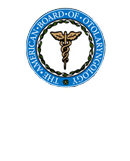Nasal Polyps Treatment in New York City – Non-Surgical Relief from a Leading ENT Specialist
Nasal polyps are a common yet frustrating condition that can lead to chronic nasal congestion, difficulty breathing, loss of smell, and recurrent sinus infections. At Open Sinus, board-certified ENT specialist Dr. Gregory Levitin offers patients in New York City a comprehensive, non-surgical approach to treating nasal polyps—reserving surgery only when absolutely necessary.
Non-Surgical Nasal Polyp Treatments That Work
Dr. Levitin prioritizes minimally invasive and medically managed treatments for nasal polyps. Thanks to advances in targeted therapies and medications, many patients can experience long-term relief without surgery. Clinical studies show that:
- Biologic therapies like DUPIXENT® (dupilumab) reduced nasal polyp size and improved sense of smell in over 50% of patients within 24 weeks.
- Intranasal corticosteroids like Flonase and Nasonex are effective in controlling inflammation and polyp regrowth.
- Xhance, a prescription nasal spray, delivers medication deep into the nasal passages and has shown statistically significant polyp reduction in clinical trials.
Dr. Levitin may also use advanced office-based tools such as the ENT debrider or shaver for precision polyp removal when needed, all while avoiding the operating room when possible.
Why Choose Dr. Gregory Levitin for Nasal Polyp Treatment?
Dr. Levitin is a nationally recognized ENT expert in minimally invasive sinus care. After serving on faculty at the Mount Sinai Health System, he founded Open Sinus to focus on comprehensive and patient-centered sinus care. He manages every aspect of treatment—from diagnosis to advanced medication management—and brings decades of expertise to ensure the best outcomes for each patient.
Recognized Leadership in ENT:
- Board-certified in Otolaryngology/Head and Neck Surgery
- Associate Clinical Professor at The New York Eye and Ear Infirmary of Mount Sinai
- Named a Castle Connolly Top Doctor and New York Super Doctor multiple years running
- National media contributor to the New York Times, WebMD, ABC News, and more
Frequently Asked Questions About Nasal Polyps
1. What are nasal polyps?
Nasal polyps are soft, noncancerous growths that develop in the lining of the nasal passages or sinuses due to chronic inflammation. They often occur in both nostrils and can obstruct normal airflow and drainage.
2. What causes nasal polyps to form?
Nasal polyps are typically caused by chronic inflammation, which may result from asthma, recurring infections, allergies, sensitivity to medications like aspirin, or certain immune disorders.
3. What are the symptoms of nasal polyps?
Common symptoms include:
- Persistent nasal congestion
- Runny nose
- Postnasal drip
- Decreased or lost sense of smell
- Facial pressure or pain
- Frequent sinus infections
4. How are nasal polyps diagnosed?
Dr. Levitin diagnoses nasal polyps through a detailed nasal endoscopy, imaging studies like CT scans, and a review of your medical history. His experience allows for precise diagnosis and targeted treatment planning.
5. What treatments are available for nasal polyps?
Treatment options include:
- Nasal corticosteroids like Flonase and Nasonex
- Biologic therapies such as DUPIXENT®
- Xhance for deep sinus delivery
- ENT debrider or shaver for in-office polyp removal
- Sinus surgery, used only when necessary
6. Can nasal polyps be cured without surgery?
Yes. Many patients experience significant relief with non-surgical treatments. Dr. Levitin’s approach uses a combination of medications and minimally invasive tools to shrink or remove polyps without general anesthesia or hospital time.
7. What is the likelihood of nasal polyps recurring after treatment?
Nasal polyps can recur, especially in patients with underlying conditions like asthma or chronic sinusitis. However, with Dr. Levitin’s long-term management approach, including biologic medications and follow-up care, recurrence rates can be minimized.
8. How do nasal polyps affect the sense of smell?
One of the hallmark symptoms of nasal polyps is loss of smell (anosmia). Polyps can block airflow to the olfactory region. Reducing inflammation and shrinking the polyps often restores the sense of smell.
9. Are nasal polyps associated with other health conditions?
Yes. Nasal polyps are commonly associated with:
- Asthma
- Aspirin-exacerbated respiratory disease (AERD)
- Chronic sinusitis
- Allergies
- Cystic fibrosis
10. What lifestyle changes can help manage nasal polyps?
- Avoid nasal irritants like smoke and pollution
- Use a saline nasal rinse regularly
- Manage allergies with antihistamines
- Follow Dr. Levitin’s medication plan closely
- Maintain regular follow-ups to monitor inflammation
Trusted Nasal Polyp Treatment in New York City
Whether you’re dealing with persistent sinus congestion or have been diagnosed with nasal polyps for the first time, Dr. Gregory Levitin offers a trusted, personalized path to relief. He combines the most advanced non-surgical options with expert care in the heart of New York City. Call or contact our office online today to schedule a consultation with Dr. Levitin.













